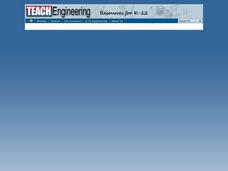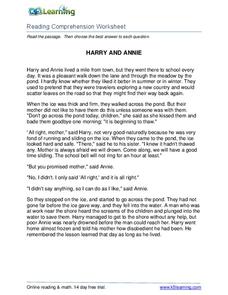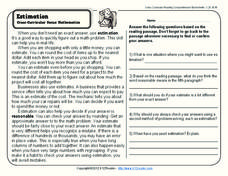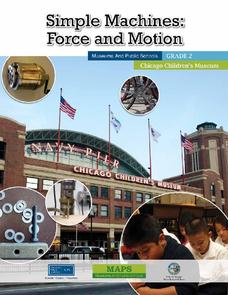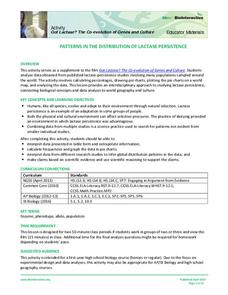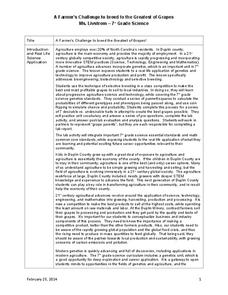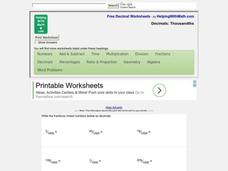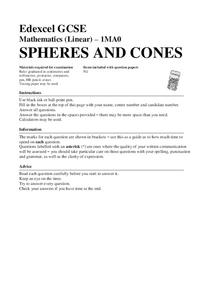Curated OER
Doing Your Corporate Homework
This is a one-page worksheet in which a student fills in an outline with facts and figures found from their individual research about a corporation whose stock is sold publicly, e.g. Microsoft or Yahoo. Good for business or econ. classes.
Curated OER
Cursed Patterns
In this scary mathematics worksheet, young mathematicians identify which of the patterns on the sheet are cursed. They fix the number that does not follow the pattern rule in each set.
Helping with Math
Multiplication: 2-digit x 2-digit
Number crunchers sharpen their math skills as they solve 30 problems requiring them to multiply two-digit numbers by two-digit numbers. Assign this as homework or use it as an assessment after practicing the skill together in class.
Teach Engineering
Biot-Savart Law
Electrical current going round and round,produces a magnetic field. After a demonstration of the magnetic field surrounding an electrical wire, class members use the provided formula associated with Biot-Savart's Law to calculate the...
Sierra College
"Deals on Wheels!" Car Loan Project
Help your class members learn how to use their income wisely with a comprehensive lesson plan on calculating monthly car payments. Using basic math skills and online calculators, your learners will determine the total amount to be...
K5 Learning
Harry and Annie
Henry and Annie are on thin ice—literally! Read about the siblings' winter walk and the importance of staying safe with a short passage and four follow-up questions.
K12 Reader
Expressions with Parentheses
Introduce your class to the order of operations. Included here is a reading passage that explains the concepts and provides an example and five related questions for individuals to answer.
Mr. Waynes clas
Kinematics Objectives
Accelerate young physicists' learning with this collection of problem-solving worksheets. Starting off by teaching students to identify the given information and variables in physics problems, this resource goes on to challenge them...
Math Drills
Comparing Decimals (A)
On a straightforward assignment, math whizzes write inequality symbols or the equal sign for 30 pairs of numbers. Use the page as homework, an assessment, or an in-class practice when working on CCSS.Math.Content.5.NBT.3.b.
Curated OER
Family Letter and Activity: Cars, Trucks and Percents
In this math worksheet, students will take home a letter to their parents explaining that they are studying Chapter 10: Ratio, Proportion and Percent. Then students will complete a homework activity in which they ask family and friends...
K12 Reader
Estimation
When is it a good idea to use estimation? Learn about estimation and rounding with a reading comprehension lesson. After kids read a passage about estimation, they answer five comprehension questions on the other side of the page.
K12 Reader
Points on a Coordinate Grid
Introduce your class to the basics of coordinate planes. The reading passage included here describes ordered pairs and the different quadrants on a coordinate grid. Learners read the passage and respond to five related questions.
Chicago Children's Museum
Simple Machines: Force and Motion
Get things moving with this elementary science unit on simple machines. Through a series of nine lessons including teacher demonstrations, hands-on activities, and science experiments, young scientists learn about forces, motion,...
Study Champs
Emotions and Interjections
Connect emotions to grammar with a grammar exercise that taps into a little bit of creativity. Given an emotion, learners come up with a matching interjection. There are 10 emotions listed.
Curated OER
Book Report Task Cards
With 52 task cards, learners will not run out of things to do with a book they are reading independently or with the class. Tasks include making a poster on a specific topic, writing a summary, drafting a sequel, creating a windsock,...
Howard Hughes Medical Institute
Patterns in the Distribution of Lactase Persistence
We all drink milk as babies, so why can't we all drink it as adults? Examine the trend in lactase production on the world-wide scale as science scholars analyze and interpret data. Groups create pie charts from the data, place them on a...
August House
The Archer and the Sun
Reinforce reading comprehension with a instructional activity about The Archer and the Sun, a Chinese folktale. Kids learn some background information about Chinese culture before reading the story, and answer literacy...
Collège Saint Charles Garnier
Coordinating Conjunctions (FANBOYS)
For, and, nor... Spend some time getting coordinating conjunctions just right with your class. Included here are three exercises to practice using these seven connecting words correctly; each worksheet includes a fun image and plenty of...
Kenan Fellows
A Farmer’s Challenge to Breed to the Greatest of Grapes
What does your class know about GMOs? Are they savvy to selective breeding? Challenge young minds to engineer the greatest crop of all time using a hands-on genetics unit. Learners discover the good and bad details of selective breeding,...
Starfall
A Is For...
Fun from A to Z! Use a collection of alphabet worksheets to help kids practice their letters. Kids can color and trace each letter, and draw items from a word list to indicate each letter.
Helping with Math
Decimals: Thousandths
Nine fractions and mixed numbers are provided for your class to write as decimals. All have denominators of 1000. Then, nine decimal numbers, all thousandths, are provided for learners to write as fractions or mixed numbers. If you use...
Mathed Up!
Simultaneous Equations
How do you solve systems of linear equations? Scholars watch a video to learn how to solve systems using elimination-combination. After viewing the video, they solve seven systems of equations.
Mathed Up!
Quadratic Formula
Young scholars explore how to solve any quadratic equation with a video about the quadratic formula. They then use the quadratic formula to solve a set of quadratic equations.
Mathed Up!
Spheres and Cones
Class members learn how to apply formulas for spheres and cones with a video that begins with a review of the formulas for surface area and volume of spheres and cones. Pupils use these formulas to solve problems on a worksheet.





